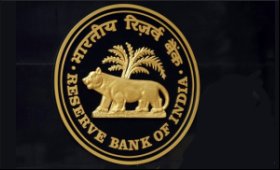|
|
|

|
RBI to allow cross-border bill payments, bring credit info cos under Ombudsman scheme: Guv
|
|

|
|
| Top Stories |
 |
|
|
|
IANS | 05 Aug, 2022
The
Reserve Bank of India (RBI) will allow the Bharat Bill Payment System
(BBPS) to process cross-border inbound bill payments that will help
senior citizens in India while their wards are overseas, said Governor
Shaktikanta Das.
The BBPS, an interoperable platform for
standardised bill payments, has transformed the bill payment experience
for users in India.
The Governor, who had announcing a policy
rate hike of 50 basis points (bps) to 5.40 per cent, said: "It is now
proposed to enable BBPS to accept cross-border inward bill payments.
This will enable Non-Resident Indians (NRIs) to undertake bill payments
for utility, education and other such payments on behalf of their
families in India. This will greatly benefit the senior citizens in
particular."
Over 20,000 billers are part of the system, and more than eight crore transactions are processed on a monthly basis.
Das
also said the RBI will soon come out with comprehensive guidelines on
outsourcing of activities by commercial banks, regional rural banks
(RRB), housing finance companies and others.
According to him,
the central bank will come out with a draft Master Direction on Managing
Risks and Code of Conduct in Outsourcing of Financial Services for
comments from stakeholders.
According to the RBI, the scope of
these directions is being expanded to also include RRBs, Local Area
Banks (LABs), All India Financial Institutions, Credit Information
Companies, and non-scheduled Payments Banks.
Welcoming the RBI's
move Sugandh Saxena, CEO at Fintech Association for Consumer Empowerment
(FACE), said: "In the last few years, the fintech lending ecosystem has
expanded in scale and complexities. It needs clear and precise contours
of engagement, stitching together various layers and interfaces, some
of which 'outsourced'."
It is only pertinent that the regulatory
framework for outsourcing and market conduct moves with market dynamics
and risks to allow innovation, better customer protection and outcomes,
and synergic partnerships within sound governance and operational
framework, Saxena added.
In order to leverage the potential of
Standalone Primary Dealers, the RBI will allow them to offer all foreign
exchange market-making facilities as currently permitted to Category-I
Authorised Dealers, subject to prudential guidelines.
This
measure will provide customers with a wider set of market makers to
manage their foreign currency risk. This will also increase the breadth
of the forex market in India.
The SPDs will be permitted to
undertake transactions in the offshore Rupee Overnight Indexed Swap
(OIS) market with non-residents and other market makers.
This
measure will supplement a similar measure announced in February this
year for the banks. These measures are expected to remove the
segmentation between onshore and offshore OIS markets and improve price
discovery.
The RBI Governor also announced bringing in the Credit
Information Companies under the Reserve Bank - Integrated Ombudsman
Scheme to redress customer grievances.
Das also said the RBI will
set up a committee to look into the need for transition to an
alternative benchmark for Mumbai Interbank Outright Rate (MIBOR) due to
the international efforts to develop alternative benchmark rates.
According
to him, the RBI has been taking measures, from time to time, to develop
the interest rate derivatives (IRD) market in India.
Such
measures have led to diversification of the participant base and
increased use of IRD instruments, such as MIBOR overnight indexed swap
(OIS) contracts, Das said.
|
|
|
| |
|
|
|
|
|
|
|
|
|
|
|
|
|
|
| |
| Customs Exchange Rates |
| Currency |
Import |
Export |
US Dollar
|
₹91.35
|
89.65 |
UK Pound
|
₹125.3
|
₹121.3 |
Euro
|
₹108.5
|
₹104.85 |
| Japanese
Yen |
₹58.65 |
₹56.8 |
| As on 19 Feb, 2026 |
|
|
| Daily Poll |
 |
 |
| What is your primary "Make or Break" expectation from the Finance Minister this year? |
|
|
|
|
|
| Commented Stories |
 |
|
|
|
|
|
| |
|